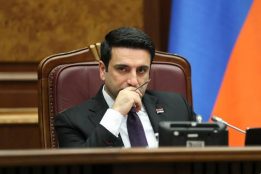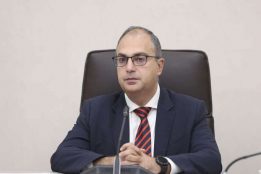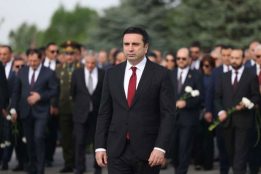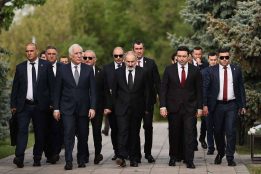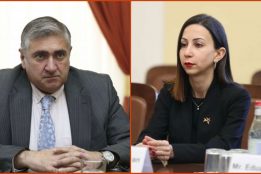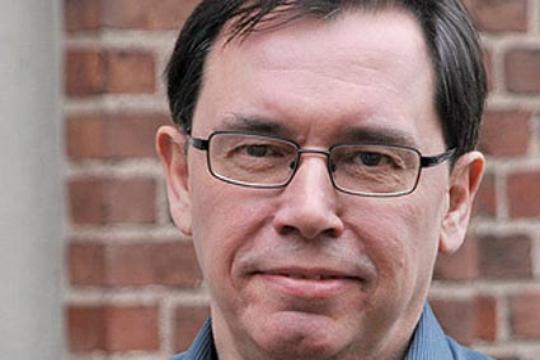
Peter Rutland, a professor of government at Wesleyan University in Middletown, Connecticut, published a new article in the New York Times, where he discusses the current development in the Caucasus. The full article is presented below.
In recent days there have been two symbolic events that run the danger of igniting hostilities in an already tense neighborhood of the Caucasus.
On Aug. 31 a former Azerbaijan Army lieutenant, Ramil Safarov, flew back to Baku after serving eight years in a Budapest jail for killing Gurgen Margarian in 2004. The victim, an Armenian officer, had been a fellow participant in a NATO Partnership for Peace exercise. Safarov hacked him to death in his sleep with an ax.
The Hungarian government transferred the prisoner to Azerbaijan on the understanding that he would serve out the rest of his life sentence in his home country. But immediately upon his arrival in Baku, Lieutenant Safarov was pardoned by President Ilham Aliyev, restored to military duties, promoted to major, given an apartment and awarded back pay for his time in prison. These actions drew universal condemnation from Washington, Moscow and European governments.
Apart from the fact that such a step is an affront to basic notions of justice and the rule of law, even more troubling is the message that it sends to the rest of the world: that the Azerbaijani government thinks it is acceptable to kill Armenians. Apparently, the grievances they suffered in their defeat by Armenian forces in 1992-94 are so profound that even murder is excusable. It is hard, then, to ask the Armenians living in Karabakh to quietly accept the idea that the solution to their disputed territory is for them to return to living under Azerbaijani rule.
This one single act could undo the patient efforts of diplomats and activists over many years to try to rebuild connections and work toward mutual trust — without which any kind of peace settlement will be a pipe dream.
Compounding the problem was a less significant but still noteworthy gesture. On Sept. 3, Richard Morningstar, the new U.S. ambassador to Azerbaijan, paid his respects to Heidar Aliyev, the deceased former president (and father of the incumbent), by laying a wreath at his statue in central Baku. Apparently it is standard protocol for U.S. ambassadors to include this stop in their round of duties when arriving in Baku. Photographs also clearly showed the ambassador bowing his head before the monument, though a State Department spokesman later denied this.
Mr. Morningstar’s far from empty gesture sent two wrong signals.
First, it is disheartening to Azerbaijani democratic activists to see the United States so cravenly supporting dictatorship as a suitable form of rule, a pattern all too familiar from U.S. policy toward the entire Middle East.
Second, it signals to Armenia — and its principal ally, Russia — that the United States is an unqualified backer of the Azerbaijani government, warts and all. Strategic interests — Caspian oil, access to Central Asia, containment of Iran — count for more than the niceties of human rights and democratic procedure.
This makes it all but impossible for Armenia to expect the United States to act as an honest broker in the peace process. And if the United States cannot play that role, no one else will.
Diplomacy has long revolved around such symbolic acts. In 1793, the Earl Macartney, British ambassador to China, was thrown out of the country when he refused to kowtow before the emperor. More recently, visits by Japanese government ministers to the Yasukuni Shrine in Tokyo, commemorating the souls of warriors, have triggered protests from China and South Korea.
By contrast, when Chancellor Willy Brandt fell to his knees before the monument to the Warsaw Ghetto in 1970 he turned a page in German atonement for its past atrocities. In the same spirit, Vladimir Putin sent a clear message of reconciliation when in 2010 he knelt at the monument to the Polish officers killed at Katyn on Stalin’s orders.
What we need in the Caucasus are leaders willing to follow the examples of Mr. Brandt and Mr. Putin, with the courage to show contrition and a willingness to meet with their former adversary and figure out a way to live together. We may be in for a long wait.

















